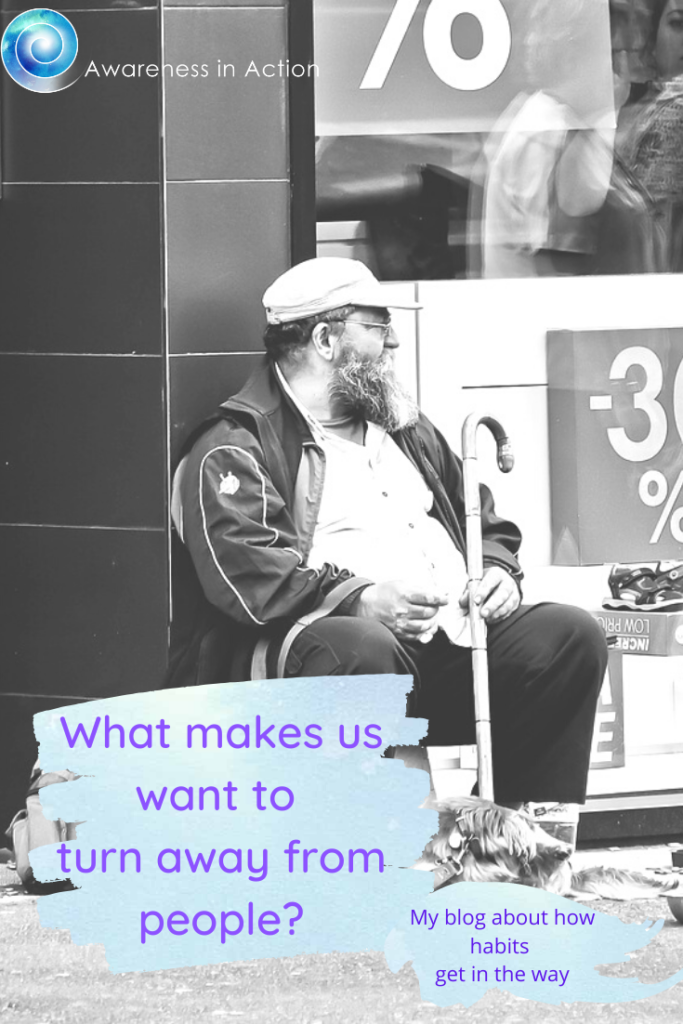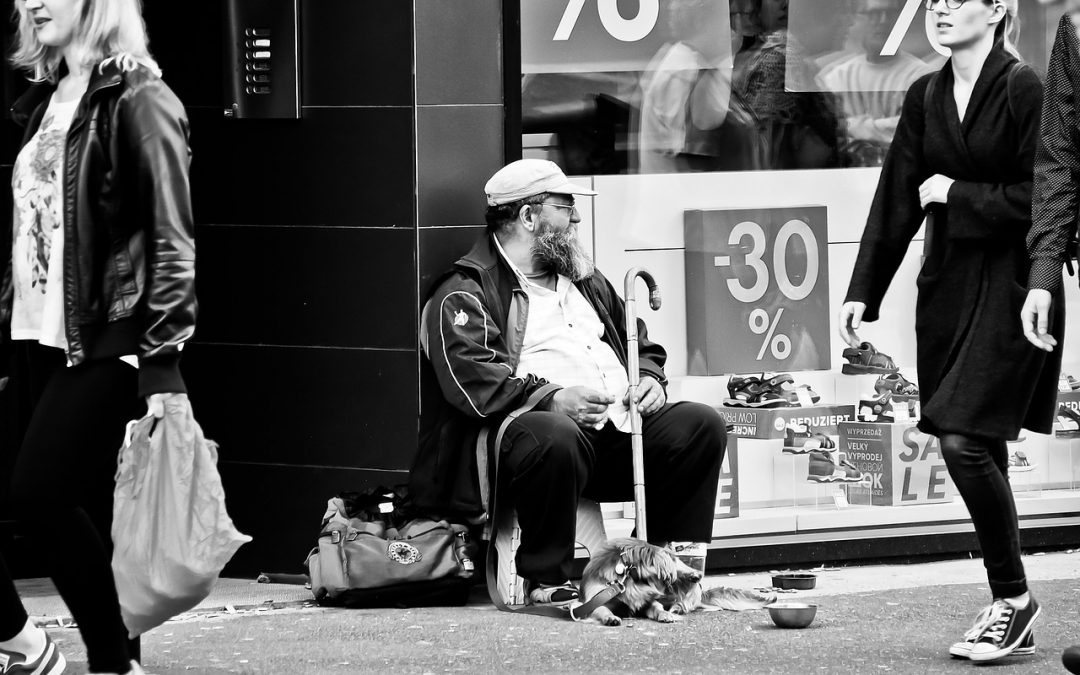We might look for connection, but it is not always easy to follow through
Just a few days ago I was sitting waiting for my partner in a square outside one of the major Amsterdam bookstores. I was enjoying people watching and feeling the connection with all the people passing by.
There was a guy leaning outside the bookstore. He must have been in his fifties, scruffy and not so well looking. All the time he stood there he was kind of grumbling out loud to himself. Sometimes if someone came too close, he upped the tempo of his grumbling into a snarl. He wasn’t a beggar. I don’t think he was drunk but he was not in a good way.
I sat for a good while—10, maybe 15 minutes. The guy was aware of me but did not make eye contact. I found myself thinking of him quite a bit and wondering where he lived, what had happened to him in his life. Then quite suddenly he took off his jacket and lunged over to where I was sitting. My immediate reaction was to get up and go into the bookstore. As I went, I heard him give a kind of sigh.
Once in the store, I realised that I had just walked away from this man without even trying to make eye contact—without even acknowledging his presence. I had been enjoying connection with the crowds, but I had turned away from him. Why did I do that? I guess I was afraid he would make a scene or accost me in some way, but I never gave him the chance.
I certainly did not give him the benefit of the doubt.
Our threat response is almost always on simmer
Human beings have evolved to defend ourselves against threat, to focus on staying alive so we can pass on our genes and ensure the continuation of the species. Although nowadays few of us live as hunter-gatherers facing daily danger, our threat response is still finely tuned to detect and act on any hint of menace. In fact, we live in a constant state of low-grade stress as we scan our surroundings for signs of threat.
Cities are usually big, sprawling places full of noise and crowded with people. We can easily feel accosted by events and circumstances not of our creation—being jostled in crowded shopping streets, being kept awake by noisy neighbours, or overwhelmed by sirens and traffic.
All of this can make us want to close in on ourselves, to protect ourselves from what we don’t like, things we find difficult. We tend to do this by avoiding connection rather than engaging—withdrawing from anything which looks threatening. So perhaps we don’t make eye contact with strangers, and we focus on getting from A to B without being drawn into other concerns.
A research study
In 1973 John Darley and Daniel Batson carried out a study called From Jerusalem to Jericho in which seminary students training to become priests were asked to give a talk on becoming a minister. Half of the students were asked to include reference to the Parable of the Good Samaritan. Some members of the group were warned that they were running late and needed to hurry. Others were simply told to walk across to where they would give their talk. As they walked from one building to another, they passed a man lying slumped on the ground is obvious discomfort. The study was to see how the students would react.
The results showed that those students in a hurry were much less likely to stop and offer help to the man on the ground—whether, or not, they had read the parable did not seem to make a difference. The key factor was that those people in a hurry were less likely to offer help.
The importance of connection
Yet as human beings we need to feel loved and to love others. We are social creatures, who thrive on a sense of connection. Without it we can become depressed and our health can suffer. Even when we suffer from serious illness, having a strong social network will help our chances of recovery. Connection is a basic human need.
Modern cities can be lonely places. The sheer size and volume of people can be overwhelming and, as we have seen, even trigger our threat response. Much of our instinct can be to protect ourselves from others. It takes patience, and practice to learn to stay open whatever the circumstances. What shocked me about my own behaviour that day was that I had been doing some compassion exercises and yet still my instinct was not to engage.
So, what can we do?
My first instinct on seeing what I had done was to give myself a hard time. I even went back out of the shop to see if the man was still there, but he had moved on and was nowhere to be seen. Slowly I realised that berating myself was not the answer. It was more important to notice how I had reacted and to take it on board—to learn from the lesson that my compassionate instinct still needs a lot of work. Instead of pushing the experience away, or drowning it out with remorse, I tried to lean into it to see clearly the sequence of what had happened.
Each of us can only deepen our compassion from where we are at any given moment. There are no rules. Much as we may wish to be open and generous toward others there will be occasions when we do not meet our own standards. However, each time we do manage to overcome our conditioning, our fears, our resistance we are making compassion a more habitual response. Human beings are hard-wired for kindness and compassion. Our challenge is to bring it out into our daily activities and to aim to feel it towards people we don’t know, or even don’t like as well as people we love and who are close to us. It’s an ongoing process and we can only start where we are, with what we have.

You might be interested in this new zoom+online course which starts on 15 June 2021 HOW DO YOU WANT TO FLOURISH IN YOUR RIPE OLD AGE?
Awareness in Action is dedicated to building a community of people interested in living a life of meaning and purpose based on sustainable wellbeing. If you would like to join with us, you could make a start by sharing and commenting on the ideas you find in the blogs on these pages. Your story is part of our journey.


